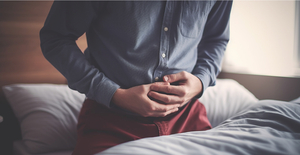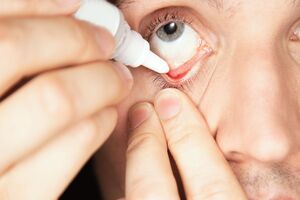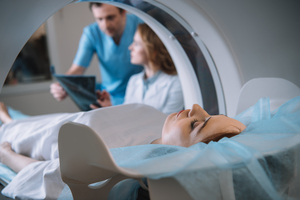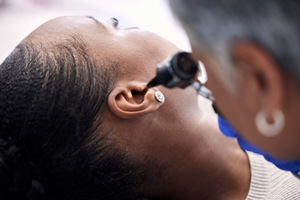Strep Tests near me
in Walls, MS
Own a clinic? Add your location.
Help patients book appointments with you on Solv. It's free!
9 instant-book locations

Baptist Urgent Care, Horn Lake, MS
Baptist Urgent Care

AFC Urgent Care, Memphis
AFC Urgent Care

Baptist Urgent Care, Germantown
Baptist Urgent Care

Baptist Urgent Care, Bartlett, TN
Baptist Urgent Care

Baptist Urgent Care, Collierville, TN
Baptist Urgent Care

No available times today or tomorrow

No available times today or tomorrow

Quest Diagnostics
Quest Diagnostics

Labcorp at Walgreens
Labcorp at Walgreens
Available times on Saturday


Walgreens
Walgreens
Prime Urgent Care Medical Clinic
Prime Urgent Care Medical Clinic
DeSoto Family Medical Center
DeSoto Family Medical Center
Get Well Urgent Care
Get Well Urgent Care
K-Testing Laboratory
K-Testing Laboratory
Care Memphis Clinic, Drive thru
Care Memphis Clinic

Urgent Care of Saint Francis , Olive Branch
Urgent Care of Saint Francis
Coast To Coast Medical
Coast To Coast Medical
Regional One Health - Regional Medical Center
Regional One Health - Regional Medical Center
Own a clinic? Add your location.
Help patients book appointments with you on Solv. It's free!
Walls Strep Tests
To establish whether you have group A or group B strep, strep tests are commonly employed. Strep throat is caused by the bacteria Group A strep, which is a sore throat infection. Although Group B strep bacteria can be present in the vaginal area, as well as the digestive and urinary systems, it rarely causes symptoms.
Your doctor may order a strep A test if you have symptoms of strep throat, such as a sore throat, difficulty swallowing, fever, or enlarged lymph nodes. Both a rapid and a traditional strep test can be used to diagnose Strep A, and both are performed in the same way.
During a strep A test, you will be instructed to tilt your head back and open your mouth wide. A tongue depressor will be used to gently keep your tongue down while a long swab is used to take a tissue sample from the back of your throat. The strep A test is harmless and rapid, although it might be uncomfortable. The quick strep test provides results in minutes, but the standard test takes one to two days to complete.
Only pregnant women between the ages of 36 and 37 weeks are usually tested for strep B. Because Group B strep dwells in the vaginal and rectum, it can be passed on to a newborn as it travels through the birth canal. A swab or a urine sample can be used to test for strep B.
During a strep B swab test, you or your doctor will collect tissue and fluid samples from your vaginal and rectum using a cotton swab. For a strep B urine test, your doctor will ask you to urinate into a sterile cup. After that, your sample will be sent to a laboratory for further analysis, with results arriving in one to two days.
Your doctor will consult with you to establish the best course of action if your strep test is positive. Antibiotics are often used to treat infections such as strep A and strep B. Antibiotics are commonly administered to a mother with strep B during delivery through an IV line to prevent the infection from spreading to her baby.
Strep Test FAQs
How long does a strep test take in Walls?
A strep test usually only takes a few minutes. A throat swab is used for the strep A test, whereas a cotton swab or a urine sample is used for the strep B test. Your healthcare provider can tell you how long your strep test will take based on the procedure used.
What happens if you test positive for group B strep?
Adults seldom show symptoms or get sick with Group B strep, but it can be dangerous for newborns. Antibiotics are commonly given to pregnant women who test positive for group B strep to keep the illness from spreading to the baby as it goes through the birth canal. Because the infant will not be exposed to germs in the delivery canal, antibiotics are not required for women with group B strep who are having a scheduled Cesarean section.
How much does a strep test cost in Walls?
A strep test's price is influenced by a variety of criteria, including provider rates, the type of test (throat swab, vaginal swab, or urinalysis), geographic region, and if your health plan covers this treatment. Getting an estimate from your health insurance company or the step test company is the quickest way to figure out how much a strep test will cost.
Does insurance cover strep testing in Walls?
Most health insurance companies will cover the cost of strep testing, particularly if your doctor believes it is medically necessary based on your symptoms and current health state. Contact your insurance carrier directly to learn more about your coverage and benefits, or ask your strep testing provider if they can do a complimentary insurance benefits check on your behalf.
How do they test for strep throat?
The strep throat A test can be conducted to determine whether or not you have strep throat. Your doctor will initially ask you to sit back in your chair and open your mouth wide. Then, using a long cotton swab, they'll extract a tissue sample from the back of your throat. This testing approach is used in both the rapid and normal strep A tests.
How long does it take to get strep test results?
The rapid test for strep A takes 10 to 20 minutes to complete, whereas the standard test takes 24 to 48 hours. A strep B test normally takes 24 to 48 hours to produce results. Your doctor or the strep test provider can give you a clearer idea of when you should expect your results.
What is a rapid strep test?
A rapid strep test can only be used to diagnose group A strep. This test looks for antigens, which are chemicals that elicit an immune response. A rapid strep test is similar to a standard strep test in that it delivers you results in minutes rather than days. A throat swab was used as a test.
How accurate is the rapid strep test?
A fast strep test can provide a trustworthy result. Some practitioners may order a classic strep A test if the quick test results are negative and the patient has multiple symptoms of strep throat. A standard strep A throat culture test is more accurate than a rapid strep A test, but it takes longer to acquire the results.
Where should I get a strep test in Walls?
Strep testing is available from a variety of healthcare providers, including your primary care physician and urgent care clinics. If you're pregnant, a specialist such as a midwife or an OB-GYN may do the strep B test for you or refer you to one. You may also use Solv to find a lab in your area that provides high-quality strep tests and make an appointment for the same day.
How can I book a strep test through Solv?
In the Search box on our website, type "strep test" or "strep throat," then select your location from the dropdown option. Solv will give you a list of the best strep testing companies in your area. Find the doctor you want to visit, then click "Call now" to make an appointment for a strep test, or go to the provider's profile for more information.

Updated on Mar 25, 2025
Solv has strict sourcing guidelines and relies on peer-reviewed studies, academic research institutions, and medical associations. We avoid using tertiary references.
Related Searches
DOT Exam in Walls
Ear Wax Removal in Walls
Physical Exam in Walls
Sports Physicals in Walls
A1C Test in Walls
Allergy Testing in Walls
Basic Metabolic Panel in Walls
CMP Test in Walls
COVID-19 Antibody Test in Walls
Diabetes Test in Walls
Diagnostic Test in Walls
Flu Test in Walls
H Pylori Test in Walls
Hepatitis test in Walls
Mono Test in Walls
Pregnancy Test in Walls
RSV Test in Walls
STD Testing in Walls
Strep Test in Walls
TB Test in Walls
Thyroid Test in Walls
Vitamin D Test in Walls
Aetna Urgent Care
Blue Cross Blue Shield Urgent Care
Cigna Urgent Care
COVID-19
Flu
United Health Urgent Care
» All services in WallsFind strep test
Nearby cities
Everyday Healthcare, Simplified
Expert advice to help you live your best life







